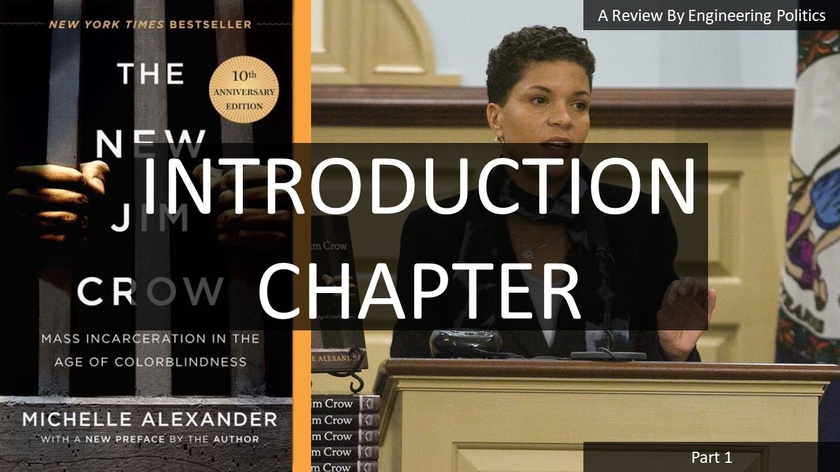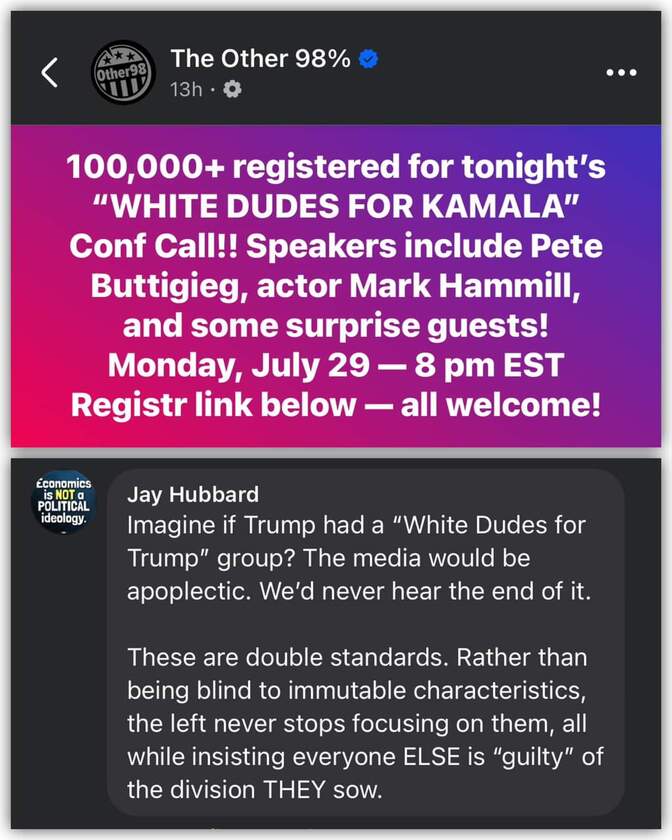
The introduction to this book is a boxer coming out of the corner with a haymaker. No working the body. Just going to head shots. This Introduction Chapter review will be split into 2 parts due to length. Michelle Alexander starts out the first paragraph by telling a story about the Cotton family and their run-ins with racism throughout American history.
“Jarvious Cotton cannot vote. Like his father, grandfather, great-grandfather, and great-great-grandfather, he has been denied the right to participate in our electoral democracy.”
The American dream seems to have been denied for the Cotton family. I do not say this sarcastically. This is genuinely a horrific trend, if we can assume all instances have to do with discrimination based on characteristics they cannot control. Let’s continue.
“Cotton’s family tree tells the story of several generations of black men who were born in the United States but who were denied the most basic freedom that democracy promises – the freedom to vote for those who will make the rules and laws that govern one’s life. Cotton’s great-great-grandfather could not vote as a slave. His great-grandfather was beaten to death by the Ku Klux Klan for attempting to vote. His grandfather was prevented from voting by Klan intimidation. His father was barred from voting by poll taxes and literacy tests.”
This story is not getting better because it shines light on some of the worst sins in American history and how they were applied. Even his father, while not explicitly being denied the right to vote because of the color of his skin, was denied due to racially motivated laws at the time. I do have some issues with the way she uses ‘democracy’ here, but that is mostly due to my annoying conservative tendencies to correct people who inaccurately refer to our governing system as a democracy. You can just ignore me on that one. Then she finishes Jarvious Cotton’s story at the end of the opening paragraph.
“Today, Jarvious Cotton cannot vote because he, like many black men in the United States, has been labeled a felon and is currently on parole.”
Wait… so the male side of his family has consistently gotten screwed over because of the color of their skin, and the implication is that Jarvious fits in that trend because of his ineligible voting status based on previous crimes he was convicted for? Very, very loose connection there. But it makes sense when you consider this is the central thesis of this book. The New Jim Crow is not a discriminatory system based in the law, but rather, an implicit racialized system built into functions of the law, like the criminal justice system, through racialized vehicles like the War on Drugs. I mean, that is the way Alexander puts it. She even admits she does not dive into violent crime much in the book because of the clear racial injustice in non-violent drug crimes say enough. So, because of Alexander’s view on how the New Jim Crow functions as a part of systemic racism in criminal justice most evidently seen through non-violent drug crimes, are we to assume Mr. Cotton was convicted of a non-violent drug crime? I guess we should, considering she never mentions how Cotton ended up a felon and the trend we see in the book so far. So, I decided to look up Jarvious Cotton on the Google machine. What did I find? Jarvious Cotton committed armed robbery and killed a 17-year-old high school student in 1982. He then fled Mississippi, where he committed the crimes, by escaping the detention center where he was being held before the trial with aid from his mother. He evaded the law for 5 years until he was arrested for marijuana possession in New York City. WIN ONE FOR THE WAR ON DRUGS! He was then extradited and went on trial in Mississippi where he pled guilty for his crimes.
I went into this book hoping to find more common ground than I did in the last book I reviewed. I mean this sincerely. Maybe I will find this common ground later in the book, but Michelle Alexander really took a major hit on her credibility and assumed sincere intentions right in the opening paragraph of the book. I hope it gets better, but… c’mon man!
Alexander continues the chapter by explaining how we should not be seeing such a high prison population in the ‘most free country’ in the world, and she also highlights the racial disparity in representation in the prison system even though white Americans use illicit drugs at the same rate, or higher, when compared to black Americans. This is based on several studies using surveys, the least reliable form of information gathering, but there is no other way to get data like this other than arrest rates, which defeats Alexander’s central argument.
There are no real noteworthy quotes in this section. She goes on for several paragraphs explaining the ‘crack cocaine epidemic’ and how it emerged a few years after the War on Drugs was declared by President Reagan in 1982. In these paragraphs, she explains the conspiracy theory about the CIA bringing crack into predominantly black urban areas as a way to racially cleanse American via the drug war. She consistently refers to this idea as a conspiracy theory and does, eventually, admit the CIA rejects the conspiracy has merit, but she still gives a lot of credibility to the conspiracy theorists’ notion that this was an intentional genocide of black Americans by the US government. There was one revelation Alexander found while researching the drug war that I can agree with.
“It may be surprising to some that drug crime was declining, not rising, when a drug war was declared. From a historical perspective, however, the lack of correlation between crime and punishment is nothing new. Sociologists have frequently observed that governments use punishment primarily as a tool of social control, and thus the extent of severity of punishment is often unrelated to actual crime patterns.”
Alexander makes a point that almost makes her sound like a Libertarian. We all know that public policy has much less to do with solving the most urgent problems and has more to do with serving the policy requests of the loudest voices. This is what happens in a democracy, and I am not sure why someone who claims to want to reinstate true democracy, like Alexander, has a problem with this. Now, of course, we are not a democracy but a constitutional republic, or at least that was the original plan. Federalism should have made this a state issue, but an overbearing federal government has too much power here. I bet Alexander would disagree on this cause. Politicians serve their constituents, and in the case of a federal government that is too large, the president serves the wants and needs of the loudest constituents all too often. If the people demand a war on drugs, that is what they will get no matter what the data says. If Alexander has a problem with this, I wonder if she will talk about the War on Poverty during a time where poverty and reliance on government programs where on the decline at the time. I bet not.
I will end this review here due to the length I have written so far. Part 2 of this review will be released tomorrow.
Thanks for reading my rant style review of the introduction chapter (Part 1) of The New Jim Crow: Mass Incarceration In The Age Of Colorblindness by Michelle Alexander. Please let me know if you find this useful. My goal here is to explain each chapter enough and in a somewhat objective way so others do not waste their time and money on investigating this material themselves. I always encourage anyone who wants to know more about the ideas in this book to go and read it themselves, but in case you do not want to, I am here for you. Please leave a comment with your thoughts.
Thanks for being a part of the Engineering Politics Locals Community!

I was listening to some news updates when I heard this CNN clip about the potentially hazardous water in East Palestine, and as soon as I heard her ask the question about whether or not her guest would drink the water, I IMMEDIATELY thought of this clip from South Park. Enjoy.
In this special episode of The Engineering Politics Podcast, Truman from Return To Reason is back for a new video and podcast series titled ‘Revisiting The Road To Serfdom’ where we review F.A. Hayek’s classic work, The Road To Serfdom. This episode covers ‘Chapter 15: The Prospects of International Order’.
This will be an ongoing series that covers the entire book. We put a ton of work into making this insightful and relevant, so we hope you enjoy watching/listening as much as we enjoyed reading and recording.
Become a subscriber of the Engineering Politics Locals Community to support this content. Also, consider joining the @ReturnToReason Locals Community to show Truman some support.
In this episode of The Engineering Politics Podcast, I team up with Truman from @ReturnToReason to interview one of the most intelligent and influential creators in the space of philosophy today. Stephen R.C. Hicks is a Professor of Philosophy at Rockford University, Executive Director of the Center for Ethics and Entrepreneurship, and Senior Scholar at The Atlas Society. He has written many books including Explaining Postmodernism and Nietzsche and the Nazis. We bring him on to talk about the social and political issues we are currently facing in America, and the West more broadly, and what the collectivist ideas of Jean-Jacques Rousseau might have to do with it.
Become a subscriber of the Engineering Politics Locals Community to support this content. Also, consider joining the @ReturnToReason Locals Community to show Truman some support.
In this special episode of The Engineering Politics Podcast, Truman from Return To Reason is back for a new video and podcast series titled ‘Revisiting The Road To Serfdom’ where we review F.A. Hayek’s classic work, The Road To Serfdom. This episode covers ‘Chapter 15: The Prospects of International Order’.
This will be an ongoing series that covers the entire book. We put a ton of work into making this insightful and relevant, so we hope you enjoy watching/listening as much as we enjoyed reading and recording.
Become a subscriber of the Engineering Politics Locals Community to support this content. Also, consider joining the @ReturnToReason Locals Community to show Truman some support.
In this episode of The Engineering Politics Podcast, I team up with Truman from @ReturnToReason to interview one of the most intelligent and influential creators in the space of philosophy today. Stephen R.C. Hicks is a Professor of Philosophy at Rockford University, Executive Director of the Center for Ethics and Entrepreneurship, and Senior Scholar at The Atlas Society. He has written many books including Explaining Postmodernism and Nietzsche and the Nazis. We bring him on to talk about the social and political issues we are currently facing in America, and the West more broadly, and what the collectivist ideas of Jean-Jacques Rousseau might have to do with it.
Become a subscriber of the Engineering Politics Locals Community to support this content. Also, consider joining the @ReturnToReason Locals Community to show Truman some support.
In this special episode of The Engineering Politics Podcast, Truman from @ReturnToReason is back for a new video and podcast series titled ‘Revisiting The Road To Serfdom’ where we review F.A. Hayek’s classic work, The Road To Serfdom. This episode covers ‘Chapter 14: Material Conditions and Ideal Ends’.
This will be an ongoing series that covers the entire book. We put a ton of work into making this insightful and relevant, so we hope you enjoy watching/listening as much as we enjoyed reading and recording.
Become a subscriber of the Engineering Politics Locals Community to support this content. Also, consider joining the @ReturnToReason Locals Community to show Truman some support.














